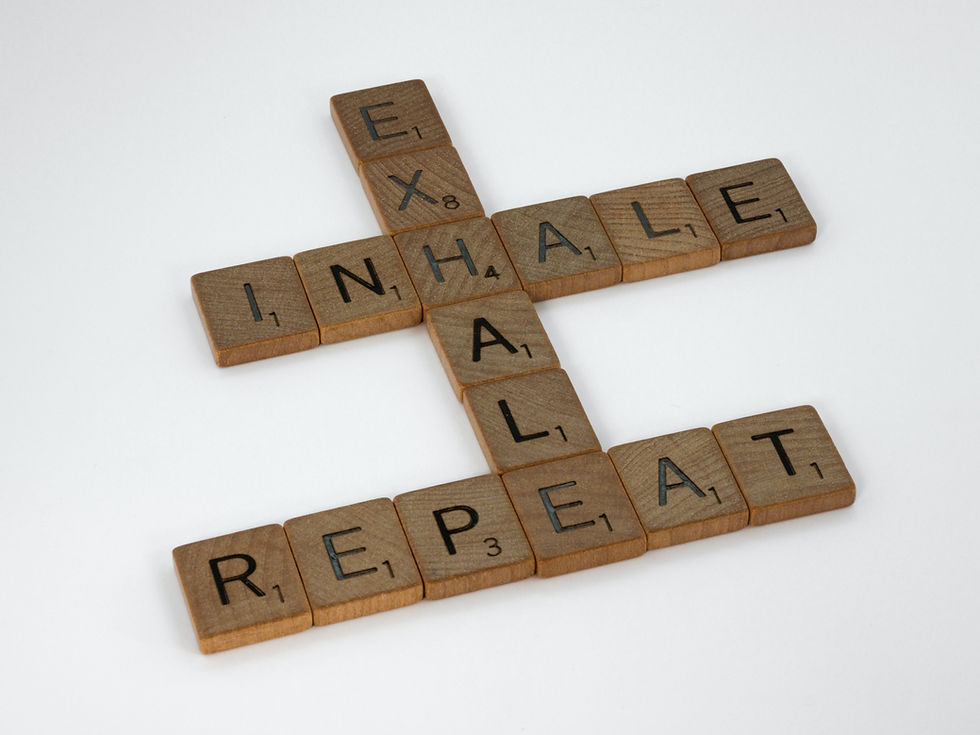DEPRESSION: Common Misconceptions
- Karen McKinney, LCMHCA

- Oct 12, 2022
- 3 min read
Updated: May 13, 2025
Did you know that there have been significant breakthroughs in understanding depression in the past few years? There are multiple new studies in peer-reviewed scientific journals such as Nature, debunking some common misconceptions of depression, even ones still taught in medical schools just a few years ago. The largest of these misconceptions is that depression is caused by a chemical imbalance in the brain which can only be restored with the right combination of psychopharmaceuticals. While there is certainly merit in the possibility of neurotransmitter dysfunction in relation to depression, the new research shows that this is usually more a symptom of a broader underlying physiological condition rather than the origin of the depression.

It turns out, that depression is an extremely complex, heterogenous condition resulting from the interplay of genetics, environment, diet, lifestyle, generational cycles of dysfunction, traumas, physiology, learned behaviors, and our nervous system’s adaptation to surviving in unsafe, unpredictable environments. However, recent studies are showing that more often than not, depression is triggered by and complicated by inflammation. And it is the microbiome that is responsible for regulating much of our inflammation, the production of key neurotransmitters, and communicating with the brain around depression and anxiety. In fact, researchers have found that transplanting gut bacteria from a depressed animal into a non-depressed animal makes the non-depressed animal develop depression symptoms. And alternately, gut bacteria from healthy animals transplanted into a depressed animal relieves the depression symptoms.
So, what does this mean? The new theory is pointing to an increased focus on the gut-brain axis and that things such as diet, exercise, lifestyle patterns, environment, timing meals and sleep with our circadian rhythm, and mindfulness-based interventions are some of the most critical factors in reducing inflammation and protecting our mental health. In fact, studies have shown that changes in our diet and lifestyles can be even more effective than pharmaceutical interventions and without the host of side effects.
Our diet is the single most important factor in regulating the balance between good and bad bacteria in our gut, which in turn, regulates our immune function, inflammation, and production of neurotransmitters (among many, many others). And according to the research, the most effective diet for promoting good bacteria and overall gut health is one that is primarily centered around whole foods and mostly plants, with limited dairy, meat, sugar, stimulants, and processed foods. This will naturally improve mood, depression and anxiety symptoms, and brain fog.
Mental health counseling can only be as effective as your body can handle. Addressing your diet, lifestyle, and environment can set the foundation for improved health and wellness and prepare you to take on the task of therapy. You will then be in a place where you can safely and effectively address maladaptive patterns of thinking and behaving, explore core beliefs and past traumas, and learn healthy new skills.
At IVY Integrative, you can work with one practitioner or build your own team of holistic practitioners! Reach your optimum health in-person or online. Check out our Get Started page to learn how to work with us!
Author: Karen McKinney, LCMHCA
References
Berk, M., Williams, L.J., Jacka, F.N. et al. So depression is an inflammatory disease, but where does the inflammation come from?. BMC Med 11, 200 (2013). https://doi.org/10.1186/1741-7015-11-200
Caso, J.R., MacDowell, K.S., González-Pinto, A. et al. Gut microbiota, innate immune pathways, and inflammatory control mechanisms in patients with major depressive disorder. Transl Psychiatry 11, 645 (2021). https://doi.org/10.1038/s41398-021-01755-3
Foster, Jane. & Neufeld, Karen-Anne. Gut-brain axis: how the microbiome influences anxiety and depression. Trends in Neurosciences 36(5), 305-312 (2013).
Katarzyna Socała, et al. The role of microbiota-gut-brain axis in neuropsychiatric and neurological disorders. Pharmacological Research, 172 (2021). https://doi.org/10.1016/j.phrs.2021.105840
Köhler-Forsberg, O, et al. Efficacy of anti-inflammatory treatment on major depressive disorder or depressive symptoms: meta-analysis of clinical trials. Acta Psychiatr Scand. 2019;139:404–19.
Zheng, P., Zeng, B., Zhou, C. et al. Gut microbiome remodeling induces depressive-like behaviors through a pathway mediated by the host’s metabolism. Mol Psychiatry 21, 786–796 (2016). https://doi.org/10.1038/mp.2016.44
Disclaimer: This information is generalized and intended for educational purposes only. Due to potential individual contraindications, please see your primary care provider before implementing any strategies in these posts.



